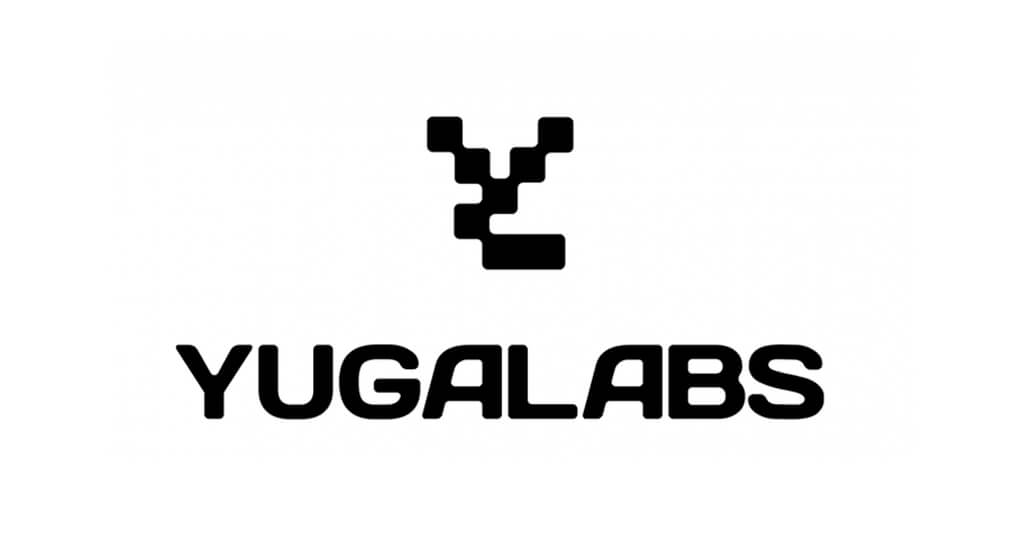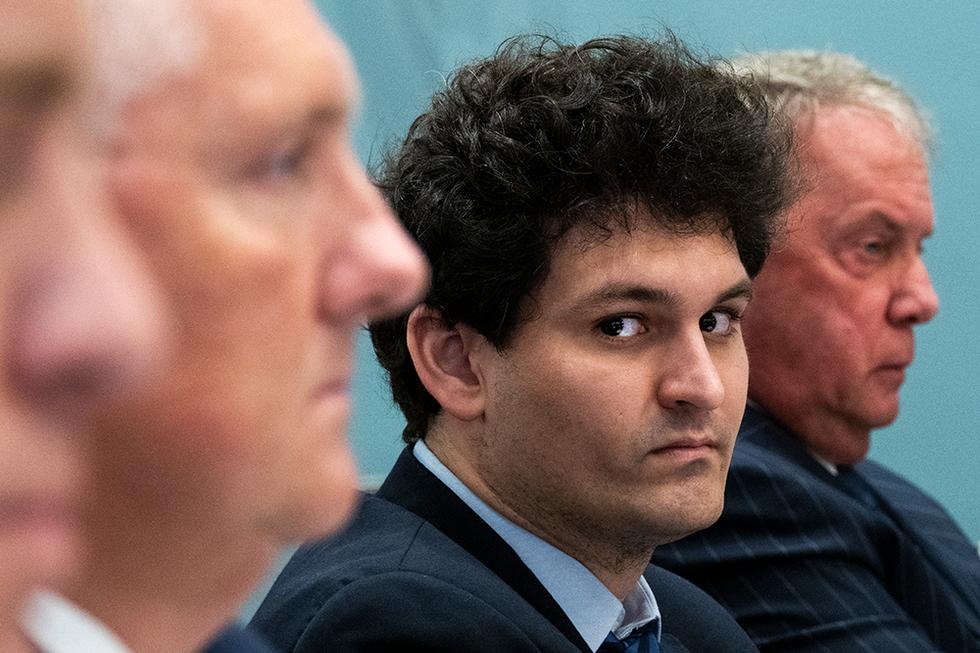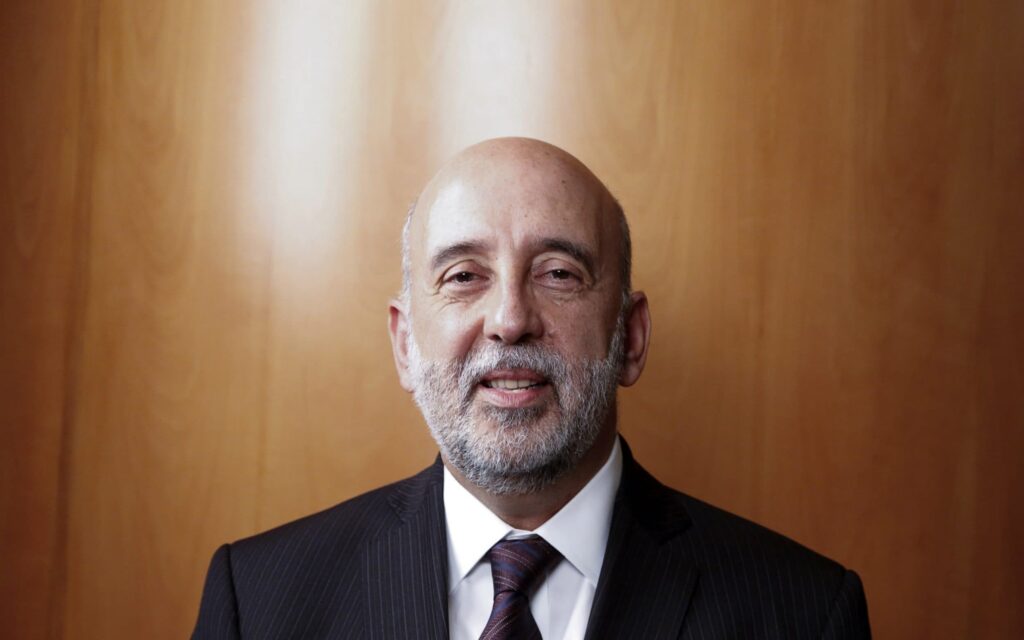The United States Federal Reserve Board rejected Custodia’s request to join the central bank as a member of its payment system. The news notes a blow to the cryptocurrency industry as it aims to receive more mainstream acceptance.
@federalreserve announces its denial of the application by Custodia Bank, Inc., Cheyenne, Wyoming, to become a member of the Federal Reserve System: https://t.co/eYy2lkJ8dh
— Federal Reserve (@federalreserve) January 27, 2023
The Federal Reserve stated in a press release that Custodia’s business plan and crypto assets focus could lead to significant “safety and soundness risks.” It also did not receive federal deposit insurance.
According to Custodia, it is a “special purpose depository institution.”
The Reserve explained further,
“The Board has previously made clear that such crypto activities are highly likely to be inconsistent with safe and sound banking practices. The Board also found that Custodia’s risk management framework was insufficient to address concerns regarding the heightened risks associated with its proposed crypto activities, including its ability to mitigate money laundering and terrorism financing risks.”
Reports show that Custodia used a Cheyenne, Wyoming-based special state licence to issue cryptocurrencies. Formerly Avanti, Custodia later filed a lawsuit against the Kansas City Federal Reserve Bank, citing claims the latter delayed a crucial decision to access the Fed as a master account.
Master accounts provide firms with access to payment systems linked to the Federal reserve. This allows streamlined transactions when switching from cryptocurrencies to fiat currencies.
STATEMENT FROM CUSTODIA BANK about today's Federal Reserve action on its membership application. Its master account application remains pending: pic.twitter.com/QkMjcT508J
— Custodia Bank ™ (@custodiabank) January 27, 2023
Caitlin Long, Custodia’s chief executive, responded: “Custodia is surprised and disappointed by the Board’s action today. The Board’s denial is unfortunate but consistent with the concerns that Custodia has raised about the Federal Reserve’s handling of its applications, an issue we will continue to litigate.”
Federal Reserve Cautions against Crypto Deposits
The news comes after the Fed previously dismissed cryptocurrencies as having safe and sound banking practices. Michael Barr, Federal Reserve vice chair of supervision, stated that banks accepting crypto firm deposits could face increasing liquidity risks.
Barr explained that the Fed was working jointly with the US Office of the Comptroller of the Currency and the Federal Deposit Insurance Corp. Doing so would allow the Fed to warn the finance sector of the risks linked to moving to deposits in the crypto industry. He added banks may face massive deposit fluctuations due to price swings across cryptocurrencies.
Wylie Aronow, Yuga Labs creator, has stepped down from his role to recover from a major health diagnosis, he revealed in a tweet on Saturday.
The Bored Ape Yacht Club and CryptoPunks chief stated that doctors had diagnosed him with congestive heart failure, forcing him to step away from his position with Yuga Labs.
He stated that the symptoms had developed “last year out of the blue” and later intensified, causing the executive to prioritise his health and wellness.
Some heavy news: a few days ago I was told by my doctor I have congestive heart failure. Symptoms started last year out of the blue and I put off seeking help (like an idiot) so I could keep working. But after testing, my doctor called and asked me to radically change my life.🧵
— GordonGoner.eth (Wylie Aronow) (@GordonGoner) January 28, 2023
He said in a statement: “I pushed myself way past my limits. I worked 12 hours a day, nearly every day. I should have taken the advice from everyone around me and sought balance. My goals now are to get the best medical treatment I can and heal.”
Aranow assured that he would remain a board member and strategic advisor to the firm. He added Daniel Alegre, former president and chief operating officer for Activision Blizzard, would join the company as its’ chief executive to manage operations.
The news comes after Aranow said in a recent statement that OpenSea’s stance on royalties has sparked a “race to the bottom in an attempt to gain market share.” Yuga Labs also aimed to change its position on creator and artist royalties amid the ongoing row with OpenSea, he added.
South Korea’s Ministry of Justice announced plans this week to launch a tracking system for cryptocurrencies. The initiative aims to fight money laundering and recoup stolen funds from cybercriminals, reports showed on .
According to a report from khgames, Seoul’s “Virtual Currency Tracking System” aims to provide oversight for transaction histories and end-to-end fund source monitoring.
The report added the authorities would deploy the system in the first half of 2023, with a further independent system for tracking and data analysis opening in the second half.
According to the Ministry, authorities responded to a rise in sophisticated cybercrime by improving forensic infrastructure. It aimed to build criminal justice tools to meet global standards.
The report continued that South Korean police struck a deal with five national crypto exchanges to work jointly on tackling crime. With collaborative investigations, the initiative aims to build a safe and reliable trading environment for investors of cryptocurrencies and digital assets.
Bithumb Legal Woes
The news comes amid a series of crackdowns on cryptocurrency markets, namely after the collapse of the disgraced trading exchange FTX. Investors lost billions in what has arguably become one of the biggest cases of financial fraud in decades.
Regarding South Korea, its Supreme Court ordered Bithumb to pay investors damages for fintech service failures in November 2017.
The platform had experienced service outages for an hour and a half, leaving investors without access to critical funds. This cost the platform payouts ranging from $6 USD to up to $6,400 USD to 132 affected investors.
Bithumb’s troubles continued after Lee Jung-Hoon, former company chairman, may face up to eight years imprisonment on crypto fraud charges valued up to $70 million USD.
The chairman of the BK Group, Kim Byung Gun, slammed the former executive with defrauding investors, leading to a case at the Seoul District Court.
Kim failed to list the Blockchain Exchange Alliance token on the Bithumb exchange, leading to a massive legal row between the two executives.
The news comes after a CertiK report found that 2023 would continue ongoing trends in cybercrime, phishing, ransomware, and other offences. Last year’s crimes cost cryptocurrency investors $3.7 billion USD, up from $3.2 billion USD in 2021.
A key member of the United States Federal Bureau of Investigation (FBI) stated authorities cracked down on the Hive crypto ransomware collective.
In a 26 January statement, FBI Director Christopher Wray stated the FBI in Tampa, Florida had received “clandestine, persistent access to Hive’s control panel.”
Today, #FBI Director Christopher Wray announced the disruption of the Hive ransomware group. The FBI's coordinated operation with our global partners prevented $130 million+ in ransom payments. Read his full remarks here: https://t.co/rDhwxLa3Cu. @FBITampa pic.twitter.com/urHtWNlJVx
— FBI (@FBI) January 26, 2023
This allowed authorities to exploit access to Hive’s data, identifying victims and providing more than 1,300 of them keys to decrypt their ransomware-infected networks. To date, the recovered networks total more than $130 million in ransomware payments.
FBI agents also secured additional ghost servers on Wednesday evening. The operation included US personnel, the German Federal Criminal Police, German Reutlingen Police Headquarters, the Netherlands National High Tech Crime Unit, and Europol.
The teams tracked ransomware payments, recovered the assets for victims, and dismantled Hive’s networks, the statement added.
“So, a reminder to cybercriminals: No matter where you are, and no matter how much you try to twist and turn to cover your tracks—your infrastructure, your criminal associates, your money, and your liberty are all at risk. And there will be consequences,” he said in his statement.
Stirring up the Hive
The comments come after Hive launched several cybercrime offences, including attacks on Costa Rica’s Public Health Service and Social Security Fund. Taking place from April to May last year, Hive criminals seized infrastructure with a $5 million Bitcoin ransom.
This caused roughly 4,800 people to miss critical doctors appointments. Wray explained that over the past seven months, victims only reported around 20 percent of attacks.
The news comes after a CertiK report that outlined potential cybercrime set to take place in 2023, where it expected the number of crimes to remain consistent.
Last year, online criminals such as hackers, phishers, scammers, and others stole up to $3.7 billion, with $595 million in thefts taking place in November.
US authorities have accused ex-FTX chief executive Sam Bankman-Fried of using his former company’s funds to invest in venture capital (VC) enterprise Modulo Capital.
The New York Times reported that FTX’s sister company Alameda Research had invested around $400 million USD in the “obscure” VC firm in 2022 — one of its largest investments.
This triggered responses from regulators amid the ongoing cryptocurrency crisis. In the ongoing probe of FTX’s collapse, investigators found the Modulo investments leveraged criminal and misappropriated funds from FTX deposits.
The report added that FTX lawyers were looking at Modulo’s assets as they searched for billions in unrecovered funds across the disgraced crypto platform’s balance sheets.
Former Alameda Research chief executive Caroline Ellison and Bankman-Fried worked for Jane Street. Three co-founders of Modulo formerly worked at the company headquartered in New York.
The news comes after investigators also found key FTX executives had splurged roughly $40 million USD in investor money for personal gain.
Bankman-Fried, Ellison, and others from the firm spent the funds on luxury hotels, shipping, meals, and global travel. Investigators revealed the embezzlement began just months before FTX collapsed.
READ MORE: Former UK Chancellor Hammond Steps in As Copper Crypto Chair
Former British Chancellor Philip Hammond has cautioned investors that European Union competitors were outpacing the United Kingdom in digital financial assets.
Hammond commented as he stepped into his role as chairman of cryptocurrency enterprise Copper.
The news comes as the fintech company aims to close a fresh round of funding, raising the company’s total value to roughly $2 billion USD.
Hammond continued: “The UK needs to be leading in this area post-Brexit. It’s allowed itself to slip behind. Switzerland is further ahead. The EU is also moving faster. There has to be appetite to take some measured risk.”
He also urged Westminster to expedite regulatory frameworks for cryptocurrencies and digital assets as other nations had already kicked off such processes.
The Copper Key to Britain’s Fintech Bid
Copper, a digital asset firm for institutional crypto acquisition, trading, and storage. It registered in Switzerland after being forced to withdraw its application from the UK.
Hammond blamed the Financial Conduct Authority (FCA) for its slow response, which may have triggered a loss of customers after its temporary registration expired in March last year.
Hammond said he hoped that “UK authorisation will be forthcoming in the future”.
“We are very much hoping to migrate back to London. Post-Brexit, the UK needs a strong financial services sector. We need to work out how to become the location of choice for trading in new asset classes.”
Adding, Copper chief executive Dmitry Tokarev said that Hammond’s public advocacy for “connecting traditional finance with distributed ledger technology comes at a time when it is needed more than ever.
The news comes as the UK aims to reposition itself as a major crypto and fintech hub for global markets. Currently, HM Treasury has posted job applications for a central bank digital currency (CBDC) team to build a sovereign digital currency.
The LinkedIn advert called for a head of digital currency to lead a team of roughly 20 people, leading to the creation of a digital pound. The initiative aims to create the CBDC as an alternative to paper and banking payment systems.
Unknown suspects have hacked Robinhood’s Twitter account to promote a scam crypto token. The 25 January tweet urged over a million Robinhood followers to buy the RBH token.
Robinhood presumably hacked pic.twitter.com/UgRD3UCbo9
— db (@tier10k) January 25, 2023
The anonymous poster urged people to pay for RBH at $0.0005 each token, which uses the Binance Smart Chain. According to Conor Grogan, Coinbase’s head of product business operations, roughly 10 people had purchased around $1,000 USD of the fake crypto tokens.
Grogan said at the time: “Looks like Robinhood’s social media was hacked. They only got ~10 people to bite on the scam token before the link was taken down. So far the token has only seen <$1000 in purchases. I imagine people crowding in now saw the volume spike and ar looking for a thrill.”
Looks like Robinhood's social media was hacked
— Conor (@jconorgrogan) January 25, 2023
They only got ~10 people to bite on the scam token before the link was taken down.
So far the token has only seen <$1000 in purchases. I imagine people crowding in now saw the volume spike and are looking for a thrill. pic.twitter.com/qladVaSzrI
Binance chief executive Changpeng Zhao added his company’s security teams had locked the account of the tweet and it had launched pending investigations.
Looks like Robinhood account got hacked and was promoting a coin on BNB Chain. Always have critical thinking even is the account looks or is real. https://t.co/XSwHIVdEdw
— CZ 🔶 Binance (@cz_binance) January 25, 2023
He said in a tweet at the time: “Looks like Robinhood account got hacked and was promoting a coin on BNB Chain. Always have critical thinking even [if] the account looks or is real.”
Currently, Robinhood does not facilitate RBH purchases, but investors can purchase exposure by buying HOOD shares on the Nasdaq stock exchange.
The news comes after a major CertiK report in early January, which stated 2023 would continue ongoing trends in hacking, fraud, and other cybercrime.
The report found malicious attacks, hacking, scams, and phishing incidents were set to increase over this year, with last year totalling $3.7 billion in losses. November cost markets roughly $595 million USD in token scams, becoming the worst month of the year.
Genesis, the bankrupt cryptocurrency lending firm linked to the ongoing FTX crisis, has sued Roger Ver, a key Bitcoin Cash (BCH) backer, due to claims of unsettled cryptocurrency options.
GGC International filed the lawsuit against Ver in the New York State Supreme Court revealed. GCC is a subsidy of the now-defunct crypto firm. It alleges that Ver failed to settle transactions for the crypto assets which expired in late December.
Named “Bitcoin Jesus,” Ver took to Reddit to explain his reason for the incident.
Margin came calling and Roger didn't pickup
— db (@tier10k) January 24, 2023
Genesis issue summons to Roger Ver for failing to settle $20m of crypto options pic.twitter.com/jZRKz4pxuw
He said in his post: “I have sufficient funds on hand to pay Genesis the sums allegedly owed, and I’m happy to pay what I actually owe. However, Genesis was required by our agreement to remain solvent — as Genesis can’t ask its clients to play a ‘heads clients lose, tails Genesis wins’ game.”
Explaining further, Ver said that Genesis “dipped under the solvency line” and that he asked the firm for solvency assurances. Genesis provided financial information that “had been called into question by recent events,” he added, referencing the recent bankruptcy.
He added: “When I asked Genesis to clarify the financial information they had provided me, they refused, and instead chose to file suit.”
Lawsuit Details
According to the lawsuit, Ver must answer the summons after the required 20-day period. He has not responded to the matters and will be forced to pay the entire sum for failing to do so.
The news comes after CoinFLEX chief executive Mark Lamb alleged Ver had defaulted on $47 million in USD Coin (USDC). Ver indirectly denied the accusations in late June.
The news comes after Genesis’ parent company, the Digital Currency Group (DCG), declared Chapter 11 bankruptcy earlier this week.
It also launched restructuring efforts for its crypto operations amid a massive row with Gemin’s Tyler and Cameron Winklevoss, who slammed Genesis over the collapse of its Earn programme.
Irish central bank governor Gabriel Makhlouf called on legislators to ban cryptocurrency firms from advertising digital assets to young adults, reports revealed.
The longstanding crypto critic slammed digital coins not backed by underlying assets as Ponzi schemes. Despite this, he claimed they posed a small risk to financial stability but could negatively impact retail customers.
Speaking further, Makhlouf explained to an Irish parliamentary committee that there was a number of young adults that had invested in crypto. There was also an “uncomfortable level of advertising” targeting the group.
“I would recommend that adverts to that cohort are banned,” he said.
He added: “Unbacked crypto is essentially a Ponzi scheme… People who put their money into unbacked crypto, and most of the significant stock of crypto out there is unbacked, they are essentially gambling. When you gamble you can win, but most of the time when you gamble, you’re actually losing.”
MiCA and EU Crypto Markets
The European Central Bank governing councillor urged EU regulators to impose “guardrails” for emerging stablecoins. These types of coins include central bank digital currencies (CBDCs) and provide stable trading values.
In July, European lawmakers passed rules requiring cryptocurrency firms to obtain licences and customer safeguards to buy and sell digital currencies across the bloc.
Regulators in Brussels called the cryptocurrency market the “Wild West.” To date, the EU aims to pass regulations to fight fraud and money laundering, among others. Parliament passed the deal at the time as its Markets in Crypto-Assets (MiCA) law.
Uniswap’s version 3 (v3) protocol is set to shift from the Ethereum network to BNB Chain following a majority vote from governor forums.
The “temperature check” proposal passed after 80 percent of voters approved the measure to deploy v3 on the BNB Chain.
Ilia Maksimenka, chief executive of decentralised finance protocol Plasma Finance, explained his reasoning for the network swap in a 17 January post.
Still LPing on v2? Get more bang for your buck with v3!
— Uniswap Labs 🦄 (@Uniswap) January 24, 2023
☝️ 1-bp fee-tier range-bound v3 stable coin pair positions outperform v2 by ~160%.
💯 100-bp fee-tier full-range v3 positions outperform v2 by ~80%.
🥉 30-bp fee-tier full-range v3 positions outperform v2 by ~16%. pic.twitter.com/2LxlgQx3Aq
He said: “We believe this is the right moment for Uniswap to deploy on BNB [proof of stake] Chain, for many reasons (one of them is License expiration).”
Adding, he said the BNB chain had “a large and growing user base, providing a potential new market” and offered “high transaction speeds and low fees.”
BSC to Provide ‘Secure’ DeFi Exchange
Cameron O’Donnell, a decentralised autonomous organisation (DAO) governance strategist at ConsenSys, explained why his firm backed the measures.
He said in a statement: “Regardless of personal views, Uniswap entering the BSC market will provide current and future users with a secure and established medium for decentralized exchange.”
The company also supported a “chain agnostic” platform to help people in the Web3 space. The process may require five to seven weeks to deploy smart contracts.












